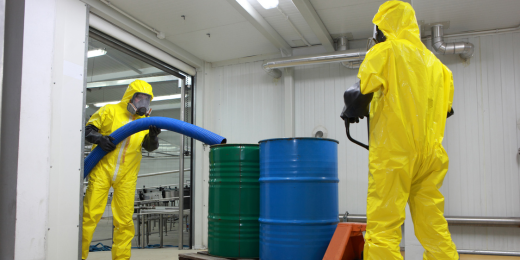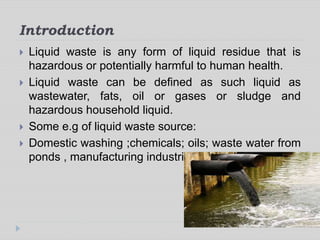Top Guidelines Of Reclaim Waste
Top Guidelines Of Reclaim Waste
Blog Article
Reclaim Waste Fundamentals Explained
Table of ContentsSome Of Reclaim WasteHow Reclaim Waste can Save You Time, Stress, and Money.6 Easy Facts About Reclaim Waste DescribedThe Basic Principles Of Reclaim Waste Reclaim Waste Things To Know Before You Get This
Residential sewer waste refers to the waste and items from a residential septic container. The correct management and disposal of residential sewer waste need liquid waste to be moved to a sewage treatment plant where the proper approaches and devices are used to purify and dispose of waste.
Commercial waste usually consists of potential threats, such as combustible materials or a combination of liquid and strong waste items, and requires an advanced and comprehensive disposal process. The disposal of commercial waste normally involves the filtering of waste prior to transport to make sure safe and appropriate disposal. Industrial waste is developed from results and overflow of commercial procedures and manufacturing.
This type of waste can not use the very same sewage administration transport or procedures as septic or industrial liquids. The commercial waste monitoring procedure requires the inspection and testing of fluid waste prior to it undergoes the disposal process (industrial wastewater treatment). Runoff waste is the fluid waste that originates from drainage and excess stormwater in highly booming areas or cities
Drainage waste can cause contamination and flooding if not taken care of appropriately. Ensuring proper waste administration can prevent catastrophes and decrease environmental injury.
The Single Strategy To Use For Reclaim Waste
Contact PROS Providers today to find out about our waste administration and disposal solutions and the proper methods to look after the liquid waste you produce.
(http://tupalo.com/en/users/7813759)Do you know what happens to your water when you pull the plug, flush the toilet or drain pipes the washing equipment? No? Well, it's worth knowing. This supposed 'wastewater' is not only a crucial source but, after therapy, will certainly be released to our land, rivers or the ocean. Utilized water from commodes, showers, bathrooms, kitchen area sinks, laundries and commercial procedures is called wastewater.

water used to cool down machinery or clean plant and tools). Stormwater, a form of wastewater, is runoff that moves from web farming and metropolitan locations such as roofing systems, parks, gardens, roads, paths and seamless gutters into stormwater drains, after rain. Stormwater flows without treatment directly to local creeks or rivers, ultimately reaching the sea.
Reclaim Waste Can Be Fun For Everyone
In Queensland, most wastewater is treated at sewage treatment plants. Wastewater is transported from residential or commercial websites with a system of sewage systems and pump terminals, called sewage reticulation, to a sewage therapy plant. Local federal governments develop, maintain and run most sewer therapy plants. Operators are licensed under the Environmental Protection Act 1994 to discharge treated wastewater at an appropriate ecological standard right into waterways.
The Division of Natural Resources encourages city governments about handling, operating and keeping sewerage systems and treatment plants. In unsewered locations, city governments may call for householders to set up specific or home sewer therapy systems to treat domestic wastewater from toilets, kitchen areas, restrooms and laundries. The Division of Natural Resources authorises the usage of family systems when they are confirmed to be effective.
In some new communities, treatment of some stormwater to remove trash, sand and crushed rock has actually started making use of gross pollutant traps. Wastewater treatment occurs in four stages: Eliminates solid issue.
Wastewater then streams right into huge storage tanks where solids clear up and are gotten rid of as sludge. Oil and scum are skimmed from the surface. Uses little living organisms referred to as micro-organisms to damage down and eliminate remaining liquified wastes and great particles. Micro-organisms and wastes are integrated in the sludge. Gets rid of nitrogen and phosphorus nutrients that could trigger algal blossoms in our waterways and endanger marine life.
The smart Trick of Reclaim Waste That Nobody is Talking About
Nutrient removal is not offered whatsoever sewage treatment plants due to the fact that it requires costly specialised equipment. It is coming to be extra usual in Queensland. Clear fluid effluent generated after treatment may still consist of disease-causing micro-organisms. If this effluent is released into waterways such as rivers or the sea, the micro-organisms will eventually die out.

Most wastewater streams right into the sewerage system. Under the Act, neighborhood federal governments administer approvals and licences for environmentally relevant tasks (Ages) involving wastewater releases that might have a neighborhood influence.
Reclaim Waste for Beginners
Otherwise, examples are taken for laboratory evaluation. Frequently many examinations are required to develop the degrees of each of the various contaminants such as oils, hefty steels and pesticides in water. Tracking supplies valid information regarding water quality and can validate that permit problems are being met. The information acquired with tracking gives the basis for making water quality decisions.
Report this page